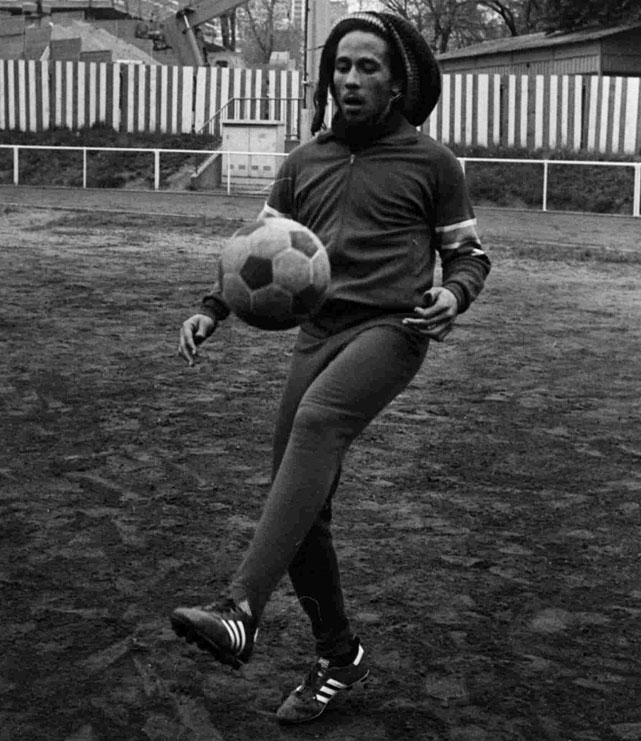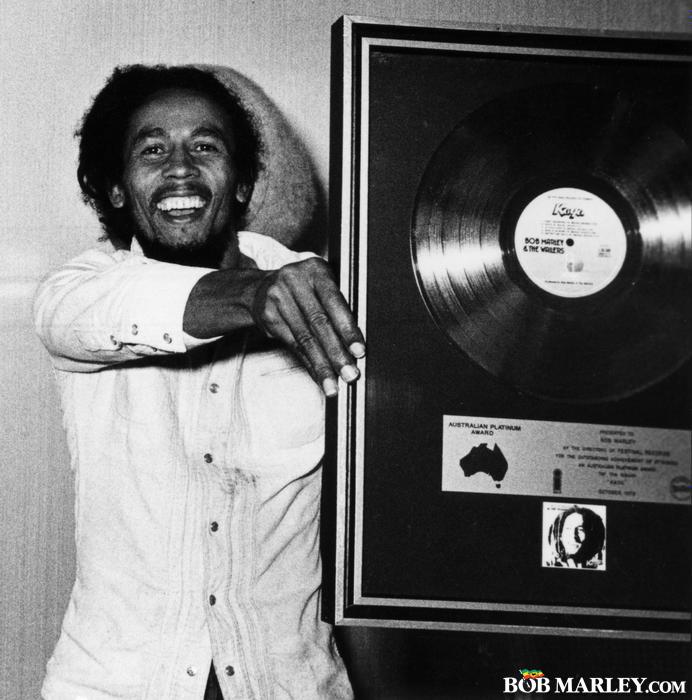
Decades after his death, Bob Marley remains a symbol of hope and inspiration in Jamaica and around the world, with an unprecedented ability to connect with people from all walks of life. In celebration of what would have been his 75th birthday this year, we’re looking back at his life, musical achievements, and never-ending legacy.
The early years
Robert Nesta ‘Bob’ Marley was born on February 6, 1945 in Nine Mile, St. Ann, to Norval Sinclair Marley and Cedella Malcolm. Norval was a white Jamaican originally from Sussex, England, who was a captain in the Royal Marines. Cedella, who was an Afro-Jamaican, was 18 years old at the time of her son’s birth. In 1955, Norval Marley died of a heart attack at the age of 70, when Bob was 10 years old.
Two years later, Bob left Nine Mile with his mother and moved to Trench Town in Kingston. He then met and subsequently lived with Thadeus Livingston (father of Neville Livingston, also known as Bunny Wailer). Both Bob’s and Livingston’s musical explorations deepened to include ska and R&B from U.S. radio stations’ broadcasts, and together with Junior Braithwaite, Peter Tosh, Beverley Kelso, Bob and Bunny Wailer, they would later form the group that became known as The Wailers.

The Wailers Catch a fire
The Wailers were discovered by record producer Coxsone Dodd (of Studio One Records), and their single “Simmer Down”, became a Jamaican #1 in 1964, selling an estimated 70,000 copies. By the mid 1960s, however, the ska beat had transitioned into a slower-paced rocksteady sound, giving way to Jamaica’s signature reggae rhythm around 1968.
1973 saw Catch a Fire, the Wailer’s first album for Island Records, released worldwide. Initially selling a mere 14,000 copies, it did not make Bob a household name, but it received positive critical reception. The album Burnin’ was released the following year, which included the hit single “I Shot the Sheriff”. Catch a Fire’s new reggae sound was unpopular with Jamaican audiences, but Burnin’s Trench Town style proved to strike a chord with both reggae and rock audiences.
Bob’s music struck a chord with audiences around the world who identified with his stances against the injustices of institutional racism in defiant, political tracks such as “Get Up, Stand Up”, “Redemption Song” and “War”.

The final years
In June 1977, a malignant melanoma was found under Marley’s toenail. The singer reportedly refused his doctor’s advice to have the toe amputated, citing hindrance of his performing career and his religious beliefs. He continued touring despite his illness, even scheduling a world tour in 1980.
Marley’s last concert was at the Stanley Theatre in Pittsburgh, Pennsylvania on September 23, 1980. He had collapsed two days prior while jogging in Central Park and was brought to hospital, where he learned that the cancer had spread to his brain.
The deterioration in Marley’s health led to the cancellation of the remainder of the Uprising Tour, leading him to seek treatment at Josef Issel’s Baravian clinic; the treatment based on avoidance of certain foods, drinks and other substances.
While flying home from Germany to Jamaica, Marley’s vital functions deteriorated rapidly. He was taken to hospital after landing in Miami, Florida, for immediate medical treatment but died on May 11, 1981 at Cedars of Lebanon Hospital. He was 36 years old. His final words to his son, Ziggy, were “money can’t buy life”.

The legend lives on
Even in death, the Marley estate continues to earn a sizable sum of money from his music. In 2019, he made US $20 million from nearly one billion streaming spins in the U.S. alone! Sales of his House of Marley products – which include headphones, speakers and turntables, also boosted earnings.
Bob Marley has been the recipient of numerous awards since his death, being posthumously inducted into the Rock and Roll Hall of Fame in 1994, posthumously awarded the Grammy Lifetime Achievement Award in 2001, and was among the first inductees into the UK Music Hall of Fame in 2004. Marley has also been voted as one of the greatest lyricists of all time by a BBC poll; Catch a Fire being inducted into the Grammy Hall of Fame in 2010.
This pioneer of reggae has managed to influence people the world over during his short lifetime, and even more in death. Happy birthday, Bob Marley.